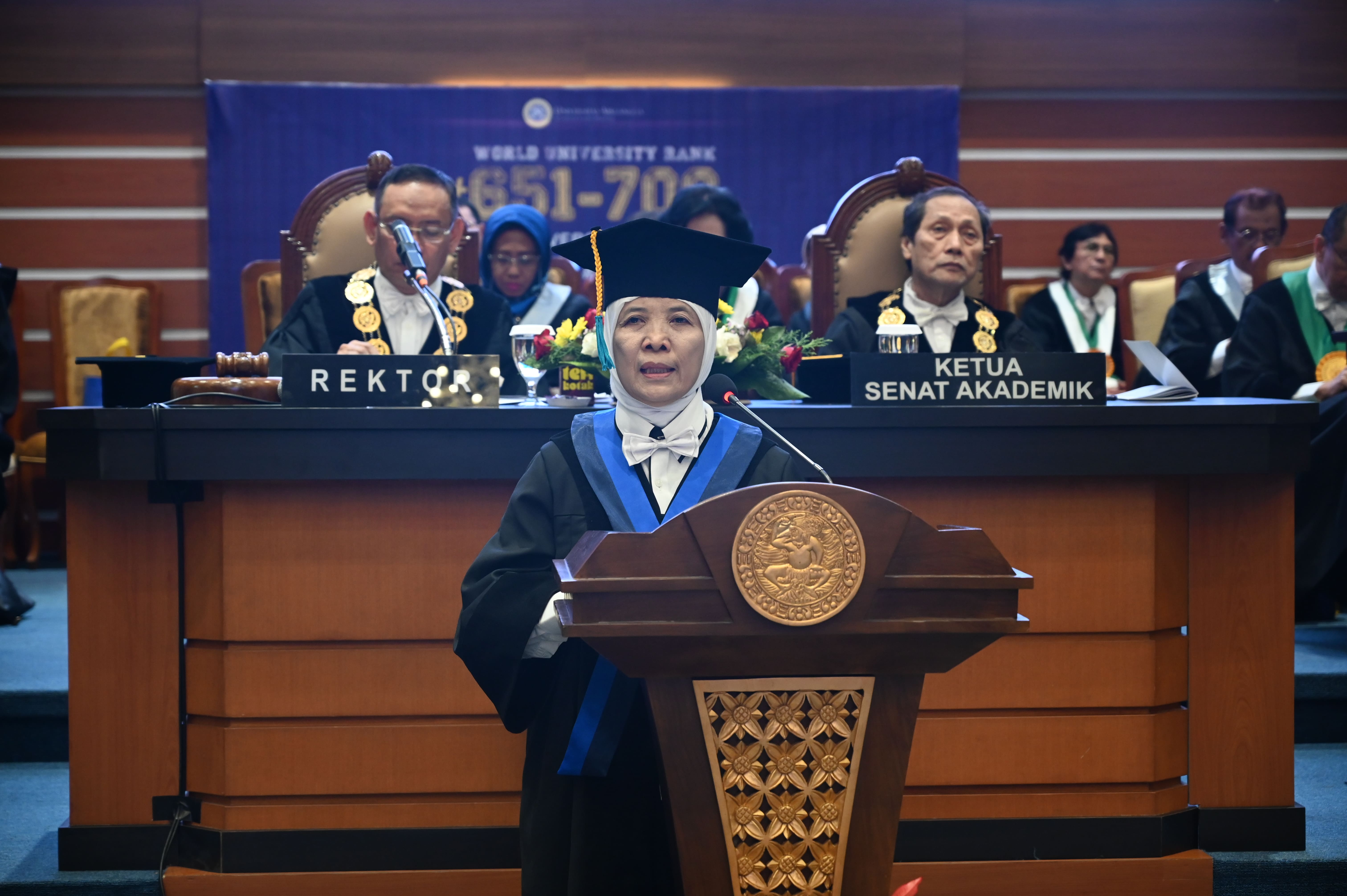UNAIR NEWS – Prof. Dr. Pratiwi Pudjiastuti, M.Si. was officially inaugurated as the 487th Professor of Universitas Airlangga (UNAIR) on Saturday, November 30, 2019 in Garuda Mukti Hall, Campus C Management Office UNAIR.
In her oration, she talked about Seaweed Capsule Shells as a Halal Nutrition Development Strategy. The Professor of Faculty of Science and Technology (FST) explained that the capsule shell made from seaweed in addition to halal, also acts as a nutraceutical.
She continued that in Islamic term, seaweed-based capsule shells are called halalan thoyyiban (halal and good, ed) while nutraceuticals themselves are food that provide health benefits, both prevention and treatment. “Halal means that it is allowed to be consumed and thoyyib means good because it contains nutrients the body needs for health,” she explained.
The hard nature of the capsule shell is commonly made of gelatin from the skin, tissue and bone of a cow; buffalo; or pork. “Gelatin has excellent gelling properties, but Indonesia still imports gelatin from Thailand, Bangladesh and India,” she said.
Prof. Pratiwi conveyed that gelatin imported from abroad was not necessarily processed based on Islamic sharia. Therefore, it is necessary to make alternative halal capsules made of vegetable (non-animal, ed) like seaweed which is abundant in Indonesia.
“Are we sure that the gelatin that we import from India and Thailand is from a cow or buffalo slaughtered in accordance with Islamic sharia? Or is the vessel for the production of cow or buffalo gelatin separated from pig gelatin or not? Have the traces of pig gelatin been washed according to the rules set in Islam, ” she said.
Prof. Pratiwi said, the need for gelatin capsule shells in Indonesia in 2018 reached 6 billion per year, while 1 billion were imported. “Opportunities for the production of seaweed-based capsule shells are still wide open. Moreover, 87% of Indonesia’s population are Muslims who need halal and thoyyib capsule shells, ” she said.
Prof. Pratiwi said, over the past three years, three types of seaweed-based capsule shells had been produced, carral (carrageenan-alginate) which is a combination of red seaweed extract and brown seaweed, carrpa (carrageenan-pati) and car-X.
“This is a challenge for capsule shell producers with non-animal raw materials. Insyaallah, Universitas Airlangga will donate one of the latest shell products from seaweed, ” she said.
In the future, added Prof. Pratiwi, it is possible to produce innovative composite capsule shell products. ” Insyaallah, in years to come other halal nutraceuticals will be produced as the development of seaweed with nanotechnology,” she concluded. (*)
Author: Erika Eight Novanty
Editor: Khefti Al Mawalia





